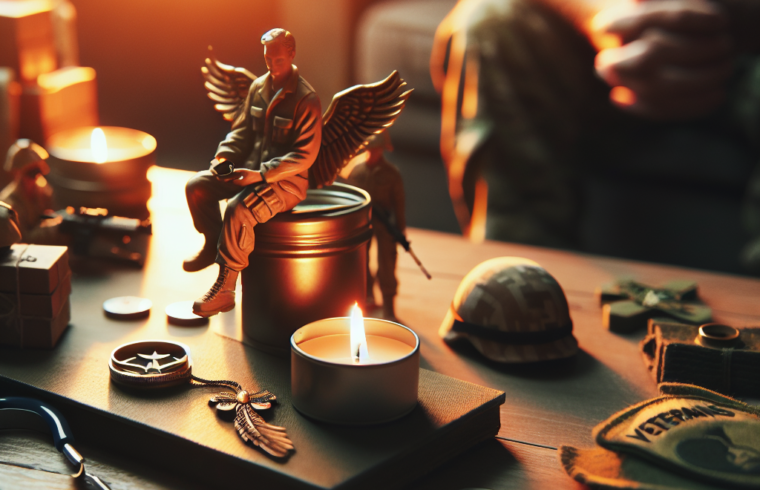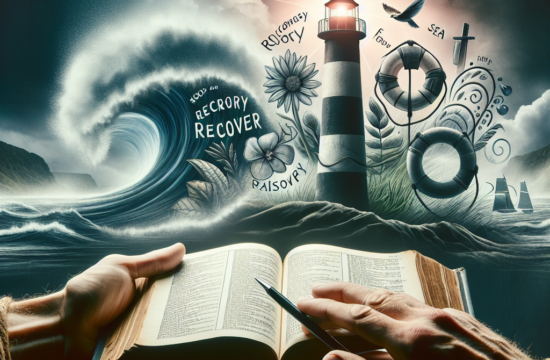==> Thank you for reading this post! Click Here If you are looking for support and Victory over PTSD.
The Rising Number of Veterans Experiencing PTSD
Understanding the Statistics
First off, it’s surreal to see the numbers. The rates of PTSD among veterans are staggering and get more alarming every year. When I look at the stats, it’s hard not to feel overwhelmed. The VA reports highlight that around 11-20% of veterans, depending on their deployment period, suffer from PTSD. Considering how many brave souls put their lives on the line for us, that’s a massive concern.
We need to talk about these stats openly. When veterans return home, many face challenges that don’t end when they take off their uniforms. It’s crucial for society to acknowledge that these numbers represent real people – mothers, fathers, sons, and daughters who are struggling to reintegrate.
In my experience, sharing these statistics helps bridge understanding. It’s important to engage with these figures; they aren’t just numbers, they reflect lives transformed by trauma. Knowledge is a great first step in fostering empathy and encouraging solutions.
The Impact of War on Mental Health
War is a brutal process, and the aftermath can be equally brutal on a soldier’s psyche. Personally, witnessing friends affected by their experiences has made me realize the sheer weight of combat. They come back not only with physical scars but with invisible wounds that are just as debilitating, if not more so.
The psychological toll is significant. Many veterans deal with flashbacks, anxiety, and severe depression. Being unable to talk openly can create a chasm between veterans and their communities. Through my own outreach, I’ve witnessed that creating safe spaces for these discussions can be a game changer.
Therefore, acknowledging the psychological effects of warfare is paramount. We need to advocate for veterans by raising awareness about these conditions, normalizing the conversation, and showing them the support networks available.
The Generational Impact of PTSD
Digging deeper, I’ve started to see how PTSD doesn’t just affect veterans; it ripples out to their families and communities. Children growing up in homes where trauma lingers can struggle with their own mental health issues often without understanding why. This generational impact is something many don’t consider.
In my discussions within communities, it’s become clear that the stigma around mental health issues perpetuates suffering. Families often feel isolated when a loved one is struggling with PTSD, and they may not know how to help, which leads to cycles of pain.
Thus, understanding that PTSD can affect multiple generations highlights the urgency of tackling this issue. By supporting veterans, we are also investing in the well-being of their families. It’s about creating a ripple effect of healing.
The Need for Accessible Resources
What Resources Are Available?
Let’s get real about what’s out there for our veterans. There are numerous resources available, from the Veterans Affairs (VA) health system to local support groups. However, getting the word out and ensuring that they are accessible is key. I’ve seen firsthand how daunting it can be for veterans to seek help. There needs to be a streamlined process to make it easier for them.
Many veterans might not even know what resources are available. I’ve chatted with folks who were completely unaware of programs designed specifically for their needs. This tells me that we need to work harder to reach our veterans effectively.
It’s all about making information accessible. Whether it’s through collaboration with community organizations or social media outreach, we must communicate efficiently to ensure our veterans get the proper care they deserve.
The Role of Telehealth
Take it from me, telehealth has been a game changer, especially since the pandemic hit. It’s been amazing to see how virtual appointments have allowed veterans to access care without the hassle of travel. For someone dealing with PTSD, the convenience of talking to a counselor from home can make all the difference.
I remember a veteran friend of mine who struggled to leave the house due to anxiety. Telehealth opened doors for him that he never thought would exist. This option isn’t a replacement for in-person care, but it can serve as a bridge for many who are hesitant.
As we continue to adapt to new technologies, we need to advocate for increasing telehealth options. Ensuring that these services are not only available but also easy to navigate will benefit countless veterans seeking help.
Community Support Initiatives
Community support can’t be overlooked. Creating initiatives that involve veterans and civilians working together fosters understanding. In my area, there are programs that pair veterans with mentors who have experience in navigating PTSD, and the transformation is palpable.
Engaging civilians to create supportive environments is essential. Many community members want to help but simply don’t know how. Organizing events where veterans share their experiences can break barriers, normalize conversations surrounding PTSD, and allow for healing.
Get Support and Help with Recovery! Visit us for more Information and Support
Ultimately, communities need to rally together to support our veterans. The more we involve everyone, the stronger our safety net will be for those who have served.
Advocating for Policy Changes
Understanding Legislative Needs
It feels overwhelming at times, but understanding the legislative landscape is crucial. Veterans’ mental health issues shouldn’t be politicized. Advocating for funding, better care facilities, and more focused programs can change lives. I make it a point to stay informed about legislation relating to veteran care because it directs how resources are allocated.
It’s important to support movements that fight for veterans’ rights. When I speak to local leaders, I emphasize the necessity of policies that put mental health first. Real change happens when we push for legislative support that truly values the sacrifices veterans have made.
We must also spotlight the need for training that equips professionals to handle veteran affairs effectively. Legislative advocacy combined with community involvement creates a powerful force for change.
The Importance of Awareness Campaigns
Raising awareness can’t stop at just veterans; we need to educate the public about PTSD. In my experience, running campaigns that educate people on how to recognize signs of PTSD and encouraging them to reach out can make a significant impact. The more aware everyone is, the sooner veterans can receive the help they need.
What’s great is that these awareness campaigns not only inform, but they can also foster empathy among the community. A little understanding goes a long way when it comes to connecting with those who have served.
Moreover, partnering with media outlets to share stories makes awareness campaigns relatable. Authentic narratives resonate; they break the ice and help viewers step into the shoes of veterans struggling with PTSD.
Collaborating with Nonprofits
Finally, there are countless nonprofits dedicated to aiding veterans. I personally think that forging partnerships with these organizations can enhance care. There’s power in collaboration! Nonprofits usually have on-the-ground experience that can shape policy and program decisions, making them valuable allies.
Many nonprofits benefit from volunteer assistance, and that’s where community members can step in. During my own volunteer work, I’ve noticed how this type of community support can bring about meaningful change. Getting involved builds connections and fosters a sense of belonging for veterans.
In closing, every little bit counts. The more we come together, the stronger the network of support becomes for our veterans grappling with PTSD.
Conclusion
In wrapping this up, it’s clear why veteran PTSD care is more crucial than ever. From understanding the impact of statistics to advocating for sustainable change, every aspect is intertwined. Our veterans deserve our support, empathy, and dedication to ensuring they receive the best care possible. I truly believe that by coming together, we can turn the tide for those who have sacrificed so much.
FAQ
1. Why is PTSD so common among veterans?
PTSD is common among veterans due to the intense psychological stress experienced during combat and military operations, leading to long-lasting trauma.
2. What resources can veterans access for PTSD care?
Veterans can access a variety of resources, including the VA healthcare system, community support groups, and telehealth services.
3. How can civilians help veterans with PTSD?
Civilians can help by raising awareness, volunteering with veteran organizations, and fostering understanding within their communities.
4. What role does telehealth play in veteran care?
Telehealth provides a convenient option for veterans to access mental health care, especially for those who may have anxiety about in-person visits.
5. Why should we advocate for policy changes regarding veteran care?
Advocating for policy changes is vital to ensure veterans receive adequate funding, resources, and quality care tailored to their needs.













